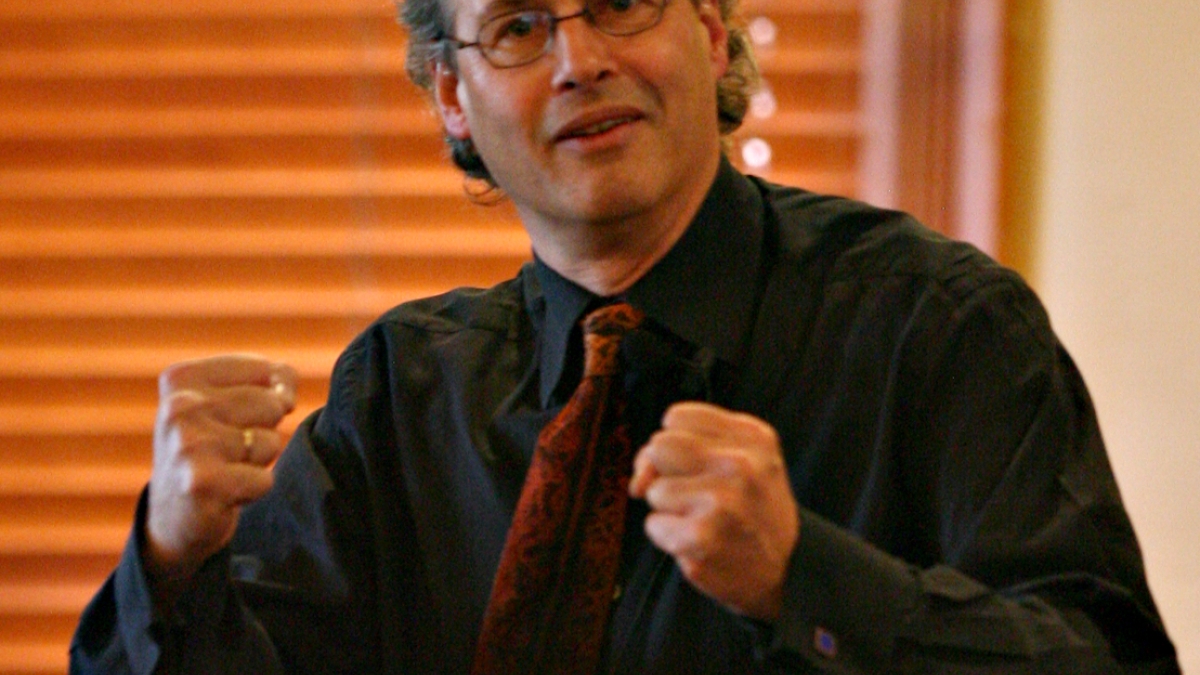Religion in American politics started with the Puritans

Despite America’s founding on a separation of church and state, religion is entwined with American politics, according to James Morone, a Brown University political science professor who gave a public lecture for the Center for the Study of Religion and Conflict on Oct. 29.
The Puritans, who defined themselves as a community of saints, brought a morality that shaped American ideals. That morality continues to pervade our political system, more than any other western country, said Morone, a noted author and speaker on American government and politics.
Morone spoke to a packed house at the Carson Ballroom in Old Main on “Saints, Sinners and Power: the Role of Religion in a Secular Government.” His lively lecture was one of a series of fall public events sponsored by the center, listed at csrc.asu.edu/.
Morone said when the Puritans brought moral politics to the new land they also brought a hatred of government. The combination brought an “us versus them” stance that continues to thrive, whipped up by a history of immigration that has led to cultural wars.
The idea of America as a “city on a hill,” an exemplar for nations around the world, has been cited by presidents throughout history, including George Washington, Abraham Lincoln and Ronald Reagan.
Morone said that morals play such a crucial role in America because Americans believe in God. It is unlike other western nations, which have become more secular.
President Obama has misread the role of the presidency by not embracing moral politics, articulating a social gospel that calls Americans to higher ideals, he said.
“Great presidents tell us who we are by articulating a philosophy. President Roosevelt cloaked the idea of helping one’s neighbor in moral terms. President Kennedy called people to action. It has been a surprise to me that Obama has become a managerial president, not a moral leader who tells us a larger narrative.”
Morone, whose 2003 book “Hellfire Nation: The Politics of Sin in American History,” was nominated for a Pulitzer Prize, said the current intense partisanship in Washington is not new. There were equally heated disagreements over Social Security, Medicare and civil rights.
“What has changed is that we don’t seem to be able to resolve our conflicts, to end the debate. There’s an institutional failure to resolve issues.”
Morone has testified before Congress numerous times, most recently in January 2009 when he addressed the newly elected members of Congress on health reform. His most recent book, “The Heart of Power: Health and Politics in the Oval Office from Roosevelt to Bush” (2009), addresses why healthcare is such a contentious issue in American politics.
The Center for the Study of Religion and Conflict, an research unit in the College of LIberal Arts and Sciences, will sponsor a talk on “Religion and Strategic Targeting in World War II” by Ron Hassner, associate professor of political science at UC Berkeley, at 2:30 p.m. Nov. 2 in Coor Hall 6761.
Other upcoming events include a Nov. 13 talk on “What is the Turkish Model?: Muslimism in Turkey and Beyond,” by Neslihan Cevik of the University of Virginia; and a Nov. 15 peace studies lecture on “Cosmopolitanism: Dialogue and the Search for Cosmos” by Fred Dallmayr of Notre Dame. Both events take place at noon in West Hall 135.;

